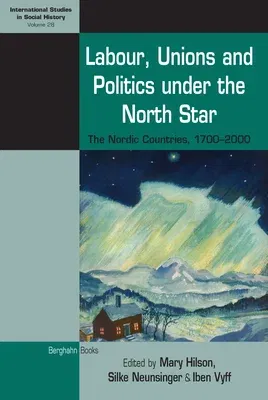Labour, Unions and Politics Under the North Star: The Nordic Countries, 1700-2000Paperback, 17 December 2018

Qty
1
Turbo
Ships in 2 - 3 days
In Stock
Free Delivery
Cash on Delivery
15 Days
Free Returns
Secure Checkout

Part of Series
International Studies in Social History
Part of Series
International Studies in Social History, 28
Print Length
346 pages
Language
English
Publisher
Berghahn Books
Date Published
17 Dec 2018
ISBN-10
1789200814
ISBN-13
9781789200812
Description
Product Details
Book Format:
Paperback
Country of Origin:
US
Date Published:
17 December 2018
Dimensions:
22.86 x
15.24 x
1.83 cm
ISBN-10:
1789200814
ISBN-13:
9781789200812
Language:
English
Location:
New York, NY
Pages:
346
Publisher:
Weight:
467.2 gm